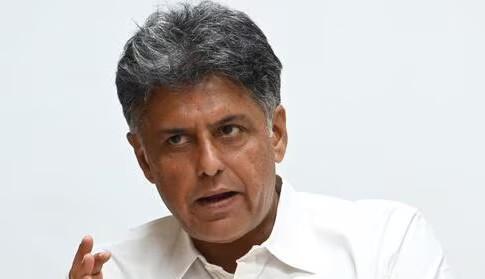
Against Constitution: Tewari on bills to remove jailed PM, CMs
The recent move by the central government to present three bills in Parliament aimed at removing Prime Ministers, Chief Ministers, and Ministers who are facing serious criminal charges has been met with widespread criticism. One of the strongest voices against these bills has been that of Congress MP Manish Tewari, who has termed them as “against the basic structure of the Constitution”.
According to Tewari, the Indian Constitution is clear in its stance that one is innocent until proven guilty. He argued that these bills, if passed, would turn this fundamental principle on its head, allowing for the removal of public leaders who have not been proven guilty of any wrongdoing. This, in his opinion, would be a grave injustice and a significant erosion of the rights of citizens.
The three bills, which aim to amend the Constitution, were presented by Union Minister Amit Shah in Parliament. One of the bills seeks to remove the Prime Minister, Chief Ministers, and Ministers who are facing serious criminal charges, while the other two bills aim to restrict the powers of the Lok Sabha Speaker and the Election Commission.
Tewari, who is a member of the Standing Committee on Law and Justice, has been vocal in his opposition to these bills. He has argued that they are designed to benefit the ruling party and its leaders, rather than serving the interests of the people. He has also pointed out that the bills are aimed at silencing the voices of opposition leaders and limiting their ability to hold the government accountable.
The potential for misuse of state instrumentalities under these bills is enormous, Tewari has warned. He has argued that if these bills are passed, the government could use them to harass and intimidate opposition leaders, and to silence dissenting voices.
Tewari’s concerns are not unfounded. The Indian Constitution is designed to protect the rights of citizens and to ensure that the government is accountable to the people. The removal of public leaders who are facing serious criminal charges without a fair trial would be a significant blow to these principles.
Moreover, the bills have been criticized for being vague and open-ended. They do not specify what constitutes “serious criminal charges”, leaving the door open for the government to decide who should be removed and who should not.
The bills have also been criticized for being unconstitutional. The Constitution of India is clear in its stance that one is innocent until proven guilty. The bills, if passed, would turn this principle on its head, allowing for the removal of public leaders who have not been proven guilty of any wrongdoing.
In conclusion, the bills presented by Union Minister Amit Shah in Parliament are a significant threat to the basic structure of the Constitution. They are designed to benefit the ruling party and its leaders, rather than serving the interests of the people. They are also unconstitutional, and the potential for misuse of state instrumentalities under these bills is enormous.
As a nation, we must be vigilant in protecting our Constitution and ensuring that it remains a beacon of hope and freedom for generations to come. We must also be wary of attempts to undermine our democratic institutions and to silence dissenting voices.






